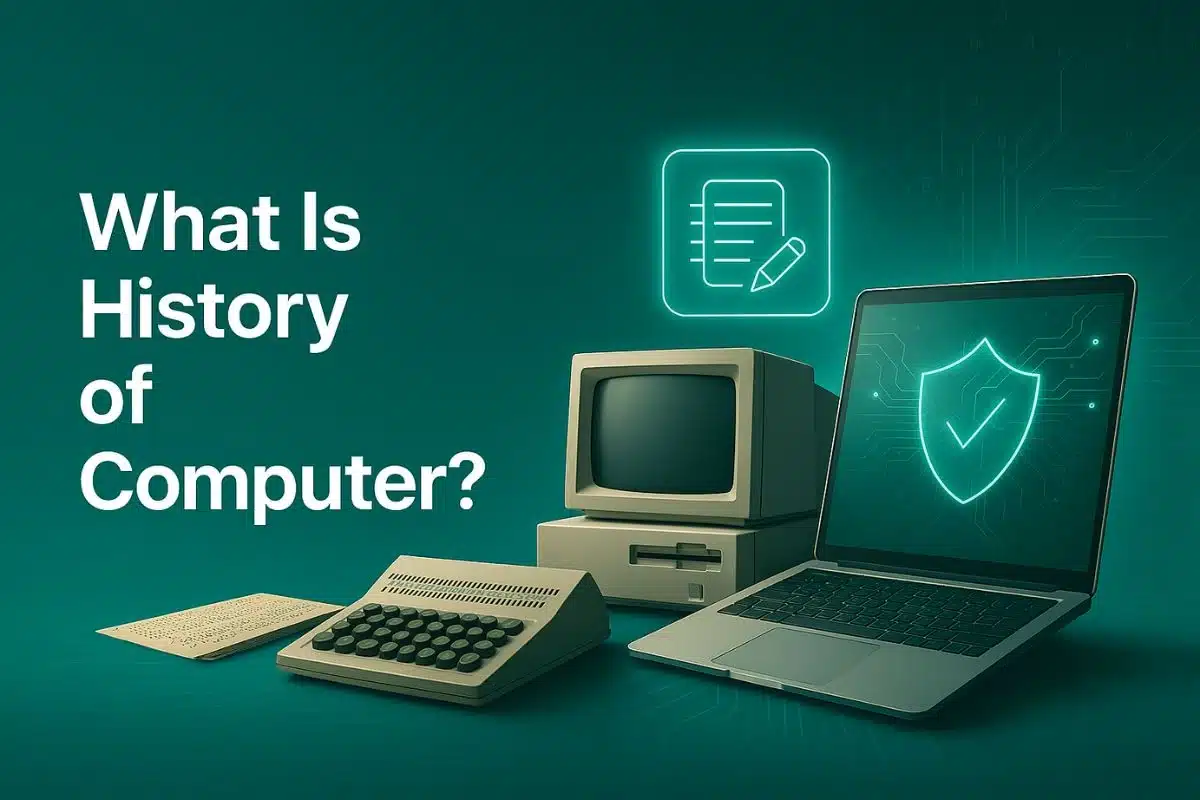Have you ever wondered what is the history of computer? Computers have come a long way—from simple counting tools to powerful machines that fit in our pockets. Understanding the history of computer helps us appreciate how technology has shaped our world.
we’ll explore the evolution of computers, from ancient devices like the abacus to modern artificial intelligence (AI). Whether you’re a student or just curious, this guide breaks down the journey of computers in an easy-to-understand way.
Early Computing Devices
Before modern computers, people used simple tools to perform calculations. These early inventions laid the foundation for today’s technology.
The Abacus
-
Invented around 2400 BCE in Mesopotamia.
-
Used beads on rods to perform basic arithmetic.
-
Still used in some parts of the world today.
The Antikythera Mechanism
-
Discovered in a shipwreck (around 100 BCE).
-
Considered the world’s first analog computer.
-
Used to predict astronomical positions.
Mechanical Computers
As mathematics advanced, inventors created more complex mechanical devices.
Pascal’s Calculator (1642)
-
Invented by Blaise Pascal at age 19.
-
Could add and subtract numbers automatically.
-
Also called the Pascaline.
Charles Babbage’s Difference Engine (1822)
-
Designed by Charles Babbage, the “Father of Computers.”
-
Could compute polynomial functions.
-
Later, he proposed the Analytical Engine, a general-purpose computer.
| Device | Inventor | Year | Function |
|---|---|---|---|
| Abacus | Mesopotamians | 2400 BCE | Basic math |
| Pascaline | Blaise Pascal | 1642 | Addition/Subtraction |
| Difference Engine | Charles Babbage | 1822 | Polynomial calculations |
The First Electronic Computers
The 20th century saw the birth of electronic computers, which used electricity instead of gears.
ENIAC (1945)
-
First general-purpose electronic computer.
-
Occupied a whole room and weighed 27 tons!
-
Used for military calculations in WWII.
UNIVAC (1951)
-
First commercial computer.
-
Used for business and government tasks.
-
Predicted the 1952 U.S. presidential election correctly.
The Rise of Personal Computers
In the 1970s and 80s, computers became smaller and affordable for everyday people.
Apple I and II (1976-1977)
-
Created by Steve Jobs and Steve Wozniak.
-
Apple II was the first successful mass-produced PC.
IBM PC (1981)
-
Popularized the term “Personal Computer” (PC).
-
Used Microsoft’s MS-DOS operating system.
Modern Computers and the Internet Age
Today’s computers are faster, smaller, and more powerful than ever.
-
Laptops & Smartphones – Portable computing.
-
Internet & Cloud Computing – Access data from anywhere.
-
Artificial Intelligence (AI) – Machines that learn and adapt.
The Future of Computers
What’s next in the history of computer?
-
Quantum Computing – Super-fast problem-solving.
-
Brain-Computer Interfaces – Direct brain-to-machine communication.
-
AI-Powered Everything – Smarter homes, cars, and cities.
FAQs
1. What is the history of computer?
The history of computer spans from ancient tools like the abacus to modern AI-powered machines, evolving through mechanical, electronic, and digital phases.
2. Who invented the first computer?
Charles Babbage designed the first mechanical computer (Difference Engine), while ENIAC was the first electronic computer.
3. When was the first personal computer made?
The Altair 8800 (1975) was among the first, but the Apple II (1977) and IBM PC (1981) popularized PCs.
4. How did computers change the world?
Computers revolutionized communication, business, education, and entertainment, making tasks faster and more efficient.
5. What is the future of computers?
Future trends include quantum computing, AI, and brain-computer interfaces, making machines smarter and more integrated into daily life.
Conclusion
The history of computer is a fascinating journey from simple counting tools to powerful AI-driven machines. Understanding this evolution helps us appreciate how technology continues to shape our lives.
Want to learn more about tech history? Explore our other blogs and stay updated with the latest innovations!



